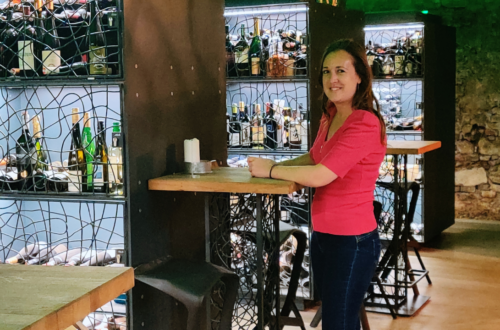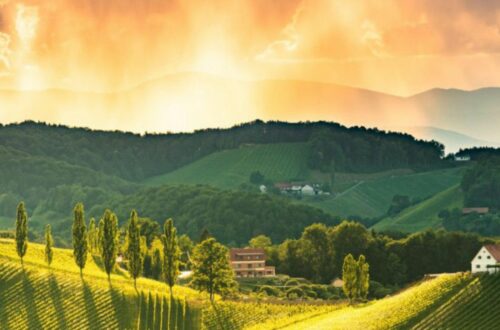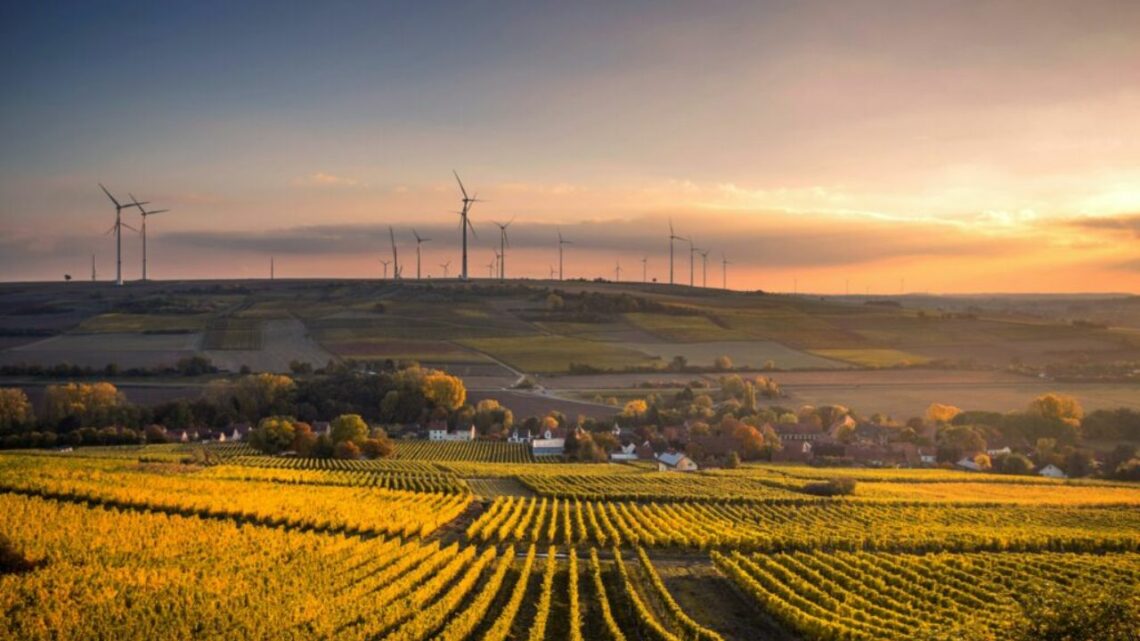
Sustainable Wine Practices In Austria
Today I want to write about why I really started this blog and why I picked the Austrian wine niche. A lot of my friends didn’t understand my focus because these wines are really a secret gem, meaning not a lot of people heard about it. Or if they’ve heard about, they mention the great scandal of 1985.
But that’s the issue with our common world: we focus on mistakes and forget to check what comes after.
Austria, surrounded by the stunning Alps, has been famous for its tasty wines for a long time, then got less famous with the 1985 scandal and today, they are often overlooked.
But recently, they’ve become leaders in making wine in a really eco-friendly way, working with nature.
More than 40% of Austria’s vineyards now use organic or biodynamic methods. This is a big deal and shows how much Austria cares about taking care of the environment.
And it also means you’ll get less of a hangover when you drink them! (although drinking with moderation still is the best way to avoid hangovers…but we all know accidents happen)
Organic and biodynamic farming aren’t just fancy words; they mean doing things in a (super-)natural way. No synthetic pesticides or fertilizers in organic farming, and biodynamic farming goes even further, using natural stuff and following the moon’s cycles to keep the soil and plants healthy.
Austrian winemakers are serious about sustainability, believing it not only helps the environment but also makes wines taste even better.
And the proof is in the pudding, or in this case, the wine! Austrian wines are loved for being pure, elegant, and balanced, showing off the perfect blend between the grapes and the environment.
So, if you want delicious and eco-friendly wines, go for Austrian ones. By picking them, you’re not just getting great taste but also supporting Austria’s awesome winemaking history.
Austria’s winemaking industry is deeply rooted in sustainability, with a focus on organic, biodynamic, and natural farming methods. Organic farming, pioneered in Austria since 1927, involves natural methods like crop rotation and composting. Biodynamic farming takes sustainability further, treating farms as living organisms and incorporating lunar cycles. Natural winemaking eschews additives and embraces nature’s processes. Austrian wineries are committed to sustainability through initiatives like Sustainable Austria certification. Sustainable practices have significant environmental, social, and economic impacts. They reduce pesticide use, prevent soil erosion, and promote biodiversity. Economically, sustainability enhances Austria’s wine reputation, meets growing consumer demand for eco-conscious products, and increases profitability for wineries adopting these practices. Overall, Austrian winemaking demonstrates a commitment to sustainability, balancing environmental stewardship, social responsibility, and economic viability.
Sustainable Winemaking Practices in Austria
In Austria, where the land is hilly, wine growers do most of their work by hand because machines can’t handle the steep slopes. The vineyards are small, about four hectares on average, and mostly owned by families. This means the people who make the decisions today understand that they impact the vineyard for many years to come.
Because of this close connection, Austrian vineyards are like mini-ecosystems with lots of different plants, insects, reptiles, and even mammals like foxes, along with various birds.
The government in Austria encourages wine growers to be eco-friendly. They give money and support to those who switch to organic farming and use smart methods to deal with pests and take care of the soil. They also help out if someone wants to use renewable energy like solar or wind power. So, in Austria, making wine isn’t just about today; it’s about keeping the land healthy for a long, long time.
Organic farming
Austria is a pioneer in keeping winemaking natural and sustainable. They were the first country in the world to embrace organic farming principles in 1927. By 1983, they set rules for organic production, and in 2005, Bio Austria, the largest organic farming association in Europe, was founded.
So, what’s organic farming? It means using methods that work with nature instead of man-made stuff. This includes rotating crops, planting cover crops, and using compost, making the soil happy and full of life.
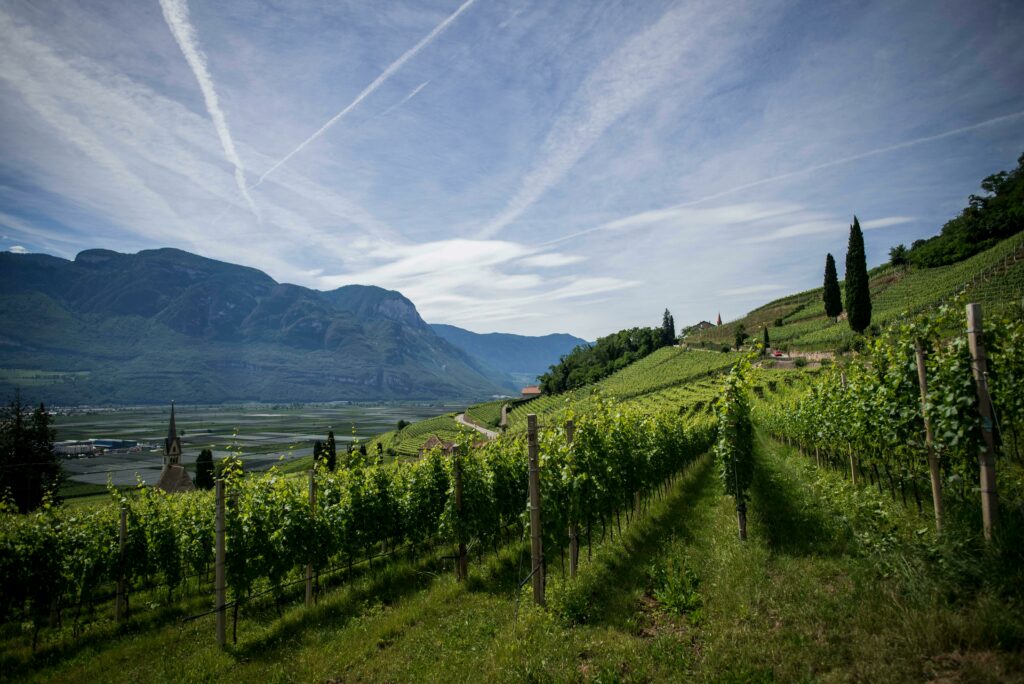
Over 20% of Austria’s vineyards are now farmed organically, one of the highest rates in the EU. It’s not easy, though. Organic farming means paying super close attention to the vineyard, with no quick fixes if something goes wrong.
They don’t use synthetic fertilizers or pesticides.
Even though it takes more time and money, the result is top-notch wine with higher quality.
For this reason, it should come as no surprise that Austria is among the world leaders in organic farming: around 14% of Austria’s farmers are practicing organic farming while 16% of the utilized agricultural areas are managed according to the principles of organic farming, making Austria number 1 in Europe for organic farming. Sustainability has always been a focus but now the country is working together to take this to a new level.
Geyerhof was one of the first to start making organic wine in Austria, way back in 1988. They knew that growing grapes should be in balance, or else we end up with too many vineyards and not enough other plants.
To tackle this, Geyerhof gave up some space where they could have planted more vines (and made more money) to instead plant trees and hedgerows. In fact, more than 13% of their land is now set aside for nature conservation. If other wineries did the same, it could make a big difference for the planet.
But Geyerhof doesn’t stop there. They also have animals like cattle, pigs, chickens, and bees. This helps to make sure there’s a variety of life around, promoting biodiversity. In recent years, they’ve even worked to bring back some species to the local area that hadn’t been seen there for a long time. It’s like they’re doing their part to take care of the environment and make great wine at the same time.

The people behind Geyerhof, Josef and Maria Maier, are the new generation running this winery in Kremstal, and it has been around for almost 800 years. Winemaking is a big part of their family history, going back for more than 14 generations.
Each generation has added their own touch to this special place. Josef’s parents worked hard to pass the business to him, making sure it has everything it needs to do well. They always remembered that keeping the land healthy is super important.
Biodynamic farming
Biodynamic farming is a special way of growing grapes for wine that cares a lot about the environment. It’s like taking sustainable winemaking to a whole new level.
This idea comes from Rudolf Steiner, who was an Austrian architect, artist, and mystic. The farmers who follow biodynamic farming treat the farm like a living thing and use as little technology as possible.
Nikolaihof, one of the first biodynamic wineries in the world, has been doing this since the 1950s. It’s in Wachau, and people from all over the world look at it as an example.
Biodynamic farmers use natural things like plants, minerals, and animal manure to make the soil and plants healthy. They also follow a lunar calendar, believing that the moon affects how the vines grow.
Weingut Huber is another winery that does this special farming. They’re certified organic, and they use green crops, clover, and flowers to attract bees. They get their power from the sun, and they even turn grape skins and leftover grape parts into compost to help the plants grow.
In Austria, there are two important groups that help wineries do biodynamic farming: Demeter, the oldest organic group in the world, and respekt-BIODYN, which started in 2007 and is not only in Austria but also in Italy, Hungary, and Germany.

These groups guide wineries to do farming in a way that makes exceptional wines with a lot of depth and energy. The wines show that the winemakers care a lot about nature.
Natural wines
Austria doesn’t just care about how the grapes are grown; they also care about a lifestyle that respects nature. People like Stephanie Tscheppe-Eselböck, who runs Gut Oggau estate, say it’s not just about making wine; it’s a whole way of living.
Some winemakers, like Sepp Muster, don’t use sprays to protect their vineyards, even if it rains a lot and there’s a risk of disease. His estate got certified as biodynamic in 2003. He believes in trusting nature and not worrying too much.
Some winemakers, like Karl Schnabel, started making wines without adding sulfites around the same time.
Natural winemakers in Austria, like Maria’s brothers, Ewald and Andreas Tscheppe, and friends like Alice and Roland Tauss, and Franz and Christine Strohmeier, formed a group called “Schmecke das Leben” (“Taste Life”). They are all about making wines that are alive.
Austrian natural wines are becoming very popular. Some, like Gut Oggau wines, are found in famous restaurants and wine bars around the world, like Noma in Copenhagen, Septime in Paris, and Maaemo in Oslo.
In the beginning, people didn’t like Austria’s natural wine movement. Eduard Tscheppe from Gut Oggau remembers having to explain a lot why their wines looked cloudy or smelled different. Even though they used to make normal wines, they decided to try making wines without adding anything to see how the vineyards and wines react.
Austrian natural wines are special because they don’t have technical problems. They often have high acidity, low pH levels, and none of the things that can make wine taste bad. This is because of Austria’s cool weather and the careful way that natural winemakers take care of the vineyards and the wine cellars.
Integrated Pest Management (IPM)
The goal of Integrated Pest Management (IPM) is to protect crops without using too many icky chemicals. Instead of relying on harmful stuff, it focuses on preventing problems and keeping an eye on pests.
IPM folks use cool things like pheromone traps and helpful bugs to keep pests in check without resorting to strong chemicals. And if they have to use some, they do it wisely, targeting only the specific pests, so it’s not bad for the environment.
Basically, IPM shows how serious Austria is about making wine in a way that’s good for the vineyards and the whole ecosystem. It’s like taking care of business while keeping everything in balance.
Sustainability Initiatives in Austrian Winemaking
The Sustainable Austria certification program started in 2015 to check if vineyards in Austria are doing good things for the environment. It looks at more than 360 things in nine areas, making sure wineries are doing stuff like organic farming, saving water, using energy wisely, and treating workers well.
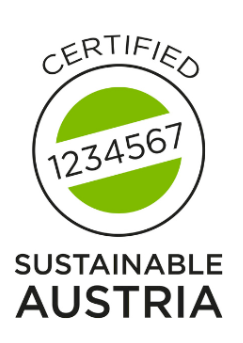
Even though it’s not easy, 25% of Austria’s vineyards have this certification. These vineyards, both big and small, show they care about the environment, the economy, and treating people right.
The process doesn’t stop after getting certified. There are yearly checks to make sure the information entered online is correct. Instead of having strict rules, the program sets specific goals for wineries. To keep the certification, wineries must achieve these goals in at least seven out of the nine categories.
The good things from Sustainable Austria are seen in the improvements made by the wineries. In 2023, Areas without herbicides have increased from 70% to 88% of certified vineyards. Eleven wineries are now producing their own energy, and around 60% of wineries are using better methods for protecting plants, reducing the amount used by up to 40%.
Biodiversity is also getting better, with 51% of wineries using special crops to make the environment healthier. Most of the energy used in making wine is now from renewable sources, going from 56% to 79%. To show they care about the environment, 26% of wineries use more than 10% of their land for special biodiversity projects, and 57% use lighter bottles to produce fewer emissions.
The certification program is not only about following rules; it’s encouraging new ideas. They are working on a way to refill glass bottles, and more wineries are growing a type of grape that doesn’t need lots of chemicals.
The Sustainable Austria certification is a symbol of how winemaking can be good for the environment and treat people right. It helps wineries in Austria do better while making delicious wines.
Weingut Rabl is another winery that is committed to sustainability. The winery has been certified as “Sustainable Austria” since 2015 and combines natural resources with sustainable practices in the vineyards and modern winemaking techniques to produce a multi-award-winning range of wines.
Another winery, Winzer Krems, has made significant investments in sustainable practices, including avoiding the use of glyphosate and planting PIWI grape varieties. The winery has also built a new cellar that uses state-of-the-art air conditioning and light-flooded rooms, and the construction of the entire facility relies on solar energy.
Impact of Sustainable Practices on Austrian Wine
Environmental Impact
Making wine in a way that takes care of the environment is super important, and Austrian winemakers are leading the way. They use practices like organic and biodynamic farming, which have loads of benefits for the environment, making sure the land stays healthy for a long time.
One big plus is that they use a lot fewer pesticides. Regular winemaking uses a bunch of chemicals that can harm the soil, water, and helpful bugs. But with sustainable winemaking, they go for natural ways like planting specific crops and using companions for the vines. This keeps the vineyards healthy without the need for harmful chemicals.
Sustainable practices also help stop soil from washing away, which is a big problem for farms. The soil gets stronger when they use organic stuff, and covering the ground with certain plants helps keep it in place, even when it rains.
It’s not just about the vines; sustainable winemaking creates a whole little world in the vineyard. By avoiding pesticides, they keep safe spaces for pollinators, birds, and other helpful creatures. This mix of life helps the vineyard stay in balance, making sure everything works well together.
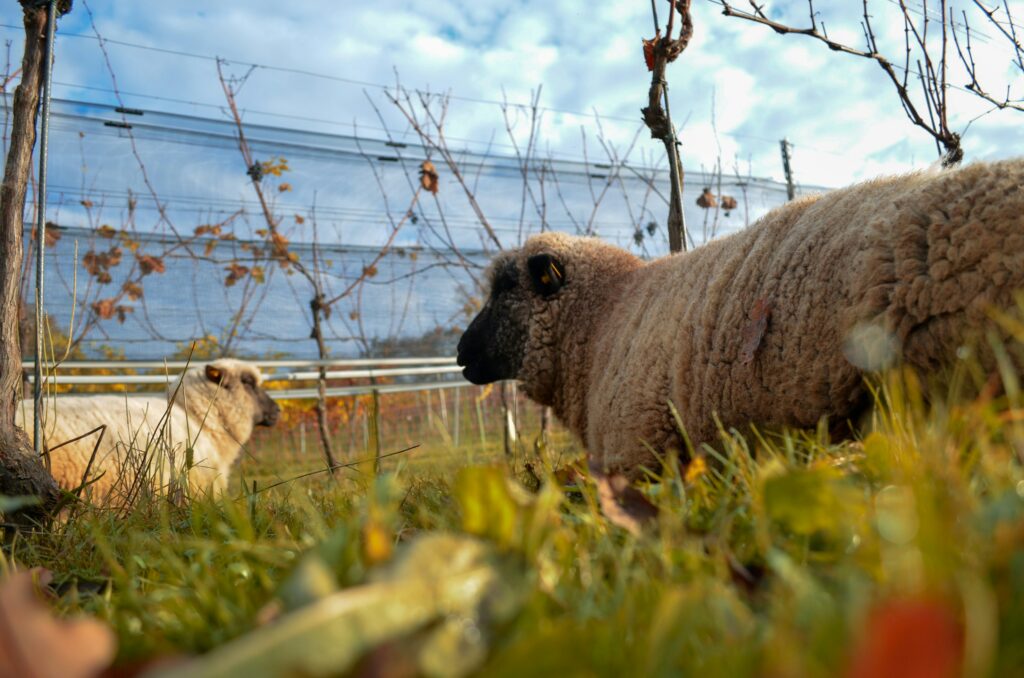
Saving water is a big deal too. They use smart irrigation systems and water-saving grape types to use less water. Also, those cover crops we talked about earlier? They help keep the soil moist, so they don’t need to water as much.
Austria has some cool examples of this in action. Wineries like Weingut Bründlmayer and Weingut Schloss Gobelsburg are using biodynamic and sustainable methods. It’s making a real difference, with less pesticide use, less soil erosion, and even a 30% drop in water consumption. These examples show how awesome it is to make great wine while looking out for the environment.
Social Impact
Making wine in Austria isn’t just about the environment; it’s also about being fair and caring for people. Austrian winemakers are doing things that make sure everyone in their community is treated well, traditions are kept alive, and workers are happy and secure.
Treating workers right is a big deal in Austrian winemaking. They get fair pay, safe conditions to work in, and social security benefits. This helps them take care of their families and live with dignity. Winemakers even choose service providers who also believe in treating people fairly, making sure everyone in the supply chain is looked after.
Preserving traditions and culture is another important part of sustainable winemaking. By supporting local communities and their unique winemaking ways, Austrian winemakers are keeping the special identity of each wine region safe. This isn’t just great for the locals; it also brings in visitors from around the world, helping the communities thrive.
Some Austrian wineries are getting certifications to show they’re doing things right. For example, Nikolaihof (Wachau), Weingut Bründlmayer (Kamptal), Weingut Schloss Gobelsburg (Wagram), Weingut Gut Oggau (Burgenland), and Weingut Weninger (Neusiedlersee) are all Fairtrade certified, meaning they follow fair labor practices and ethical sourcing.
There’s also something called “Heuriger” places, which are traditional Austrian wine taverns. They not only showcase local winemaking traditions but also create jobs and opportunities for people.
By doing all these things, Austrian winemakers aren’t just making great wines; they’re also building a wine industry that cares for its people, keeps traditions alive, and makes everyone a part of the success.
Economic Impact
Making wine in Austria isn’t just good for the environment; it’s also great for the economy. Austrian winemakers are doing things that not only make their wines special but also make people want them more, creating a positive impact on the country’s reputation and income.
One big economic boost comes from people wanting wines made sustainably. People around the world are more aware of how their choices affect the environment and society. They prefer wines that are made sustainably, creating a growing market for Austrian wines that follow these practices.
Because of this demand, Austrian winemakers can charge more for their sustainably produced wines. Studies show that people are willing to pay extra for wines that are certified sustainable because they appreciate the good things these practices bring to the environment and society. This means more money and profit for Austrian winemakers.
Sustainable winemaking also helps Austria’s wines become more famous globally. Austria has a long history of making great wines, and sustainable practices are adding to the country’s reputation for quality. When Austrian winemakers show they care about sustainability, it earns them respect from wine experts and consumers all over the world, leading to more demand and recognition for their wines.
For example:
- Weingut Bründlmayer switched to biodynamic farming in 2007 and has seen a big increase in demand, especially from other countries. People are willing to pay more for their wines because they know they’re made sustainably.
- Weingut Schloss Gobelsburg saved water by 30%, not just helping the environment but also saving costs.
- Weingut Gut Oggau, a leader in natural wines, is in high demand globally because of their commitment to sustainability.
These examples show how sustainable winemaking in Austria isn’t just about making good wines; it’s also about making a positive impact on the economy and building a strong reputation for Austrian winemaking around the world.
Conclusion : Sustainable wine practices in Austria
So what should you remember?
Austria’s winemaking industry is deeply rooted in sustainability, with a focus on organic, biodynamic, and natural farming methods. The vineyards, mostly family-owned, prioritize long-term environmental health and biodiversity. Government support encourages eco-friendly practices such as organic farming and renewable energy use.
Organic farming, pioneered in Austria since 1927, involves natural methods like crop rotation and composting. Over 20% of vineyards are now organic, contributing to Austria’s leading position in European organic farming.
Biodynamic farming takes sustainability further, treating farms as living organisms and incorporating lunar cycles. Wineries like Nikolaihof and Weingut Huber exemplify this approach, emphasizing natural elements and minimal technology.
Natural winemaking, championed by producers like Gut Oggau and Sepp Muster, eschews additives and embraces nature’s processes. Despite initial skepticism, Austrian natural wines are gaining international acclaim for their quality and purity.
Integrated Pest Management (IPM) minimizes chemical use, employing traps and beneficial insects to control pests while preserving ecosystem balance.
Austrian wineries are committed to sustainability through initiatives like Sustainable Austria certification, focusing on holistic practices like organic farming, water conservation, and worker welfare. Notable examples include Weingut Rabl and Winzer Krems, which prioritize sustainability in vineyard management and winemaking processes.
Sustainable practices have significant environmental, social, and economic impacts. They reduce pesticide use, prevent soil erosion, and promote biodiversity. Fair labor practices, preservation of local traditions, and certification programs like Fairtrade contribute to social responsibility.
Overall, Austrian winemaking demonstrates a commitment to sustainability, balancing environmental stewardship, social responsibility, and economic viability.
So, when you pick an Austrian wine, you’re not just getting a sip of joy; you’re supporting nature, people, and a legacy of caring winemaking. Cheers to Austria, where every glass is a taste of a better world!
So where can you find such wines, I would definitely recommend Organic Wine Exchange.






